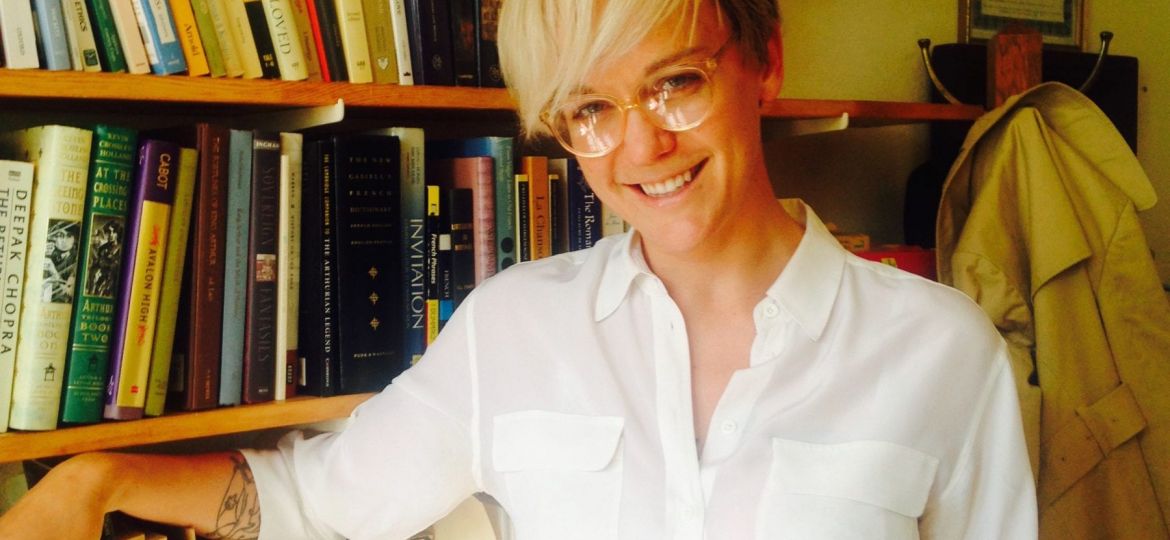
Professor of Biology Anne Walter has taught at St. Olaf for quite a long time. She was hired by St. Olaf in 1994 after many years of school and research. Walter grew up in Washington, D.C. and ventured to the midwest to attend Grinnell College, where she had the “liberal arts experience” and received her Bachelor’s degree in biology.
After Grinnell, she continued to the University of British Columbia in Vancouver and received her Master’s degree in zoology. From Canada, Walter returned to the East Coast and attended Duke University for her PhD in physiology and pharmacology. She also spent time at the National Institute of Health in Bethesda as a research fellow and from there got a job at a medical school in Dayton, Ohio.
Walter has lots of experience learning and working at universities, which makes her a great fit for St. Olaf. She teaches plenty of classes in the biology department, including Comparative Animal Physiology, Integrated Introduction to Chemistry and Biology and a senior seminar called The Neuron.
Walter also oversees and teaches some of the study abroad programs. She’s planning to take students to Quito, Ecuador for the Equatorial Biology class over interim. She also works closely with students in the semester long Biology in South India program. Though those students are halfway around the world, Walter does a lot of work overseeing their studies and helping them in any way she can.
Walter often teaches Foundations in Science, a summer class that St. Olaf offers through the Bridge program. The interim like course allows incoming students to catch up on their science before starting the year.
She is particularly excited to join students for the Mediterranean semester next year.
“I’m going to be teaching a class on water during that semester. Water, that sounds very science-y, but it’s also very political. Nobody can live without water. Health is dependent on water, say if you can’t take a bath. We will be thinking about water, where does it come from? How do you get water that’s not salty? What happens with water in agriculture? What happens when you don’t have enough water? And then of course, we will talk about the animals. How do animals survive in the desert? And the politics. What are the water treaties and what is the politics of water.”
One of Walter’s favorite things about teaching is helping students discover the complexities of what is right in front of them.
“I really like the ‘ah-ha’ moments that come in teaching labs,” Walter said. “Teaching the first years in [Integrated Introduction to Chemistry and Biology] is so much fun because they’re just very, very excited and they’re all in different places. There’s almost always an ‘ah-ha’ moment two or three times in class, every lab period. I love that. Being able to knit things together.”
Outside of the classroom, Walter does quite a bit of her own research.
“My own research has evolved a little bit, but it’s primarily been answering questions about the cell membrane. All cells have a membrane around them, that membrane is the gateway, it separates you from the outside… I’m really interested in a whole bunch of questions about that membrane. Questions about what can go through it and what won’t.”
Her research addresses the reasoning behind the consistent lipid composition of the cell membrane. More recently, Walter has been examining the specific proteins that interact with the cell membrane and how the proteins function with regard to temperature and salt levels.
“A biological system will maintain different lipid composition facing the inside versus the outside of the cell. If you try to mess with that, it will fight back and keep it at the same normal composition. So why? There are all kinds of interesting reasons that have to do with proteins that are able to bind to that membrane, proteins that can assemble on that membrane, signals that come as the membrane is disrupted, the ability of the membrane to fuse and leave the cell by exocytosis.”
Almost all of Walter’s research is student inspired.
“Students drive a lot of what I do,” Walter said. “They come in and tell me what they’re interested in, and although I try to seduce them into my projects, sometimes that doesn’t always work.”
whitfo1@stolaf.edu

